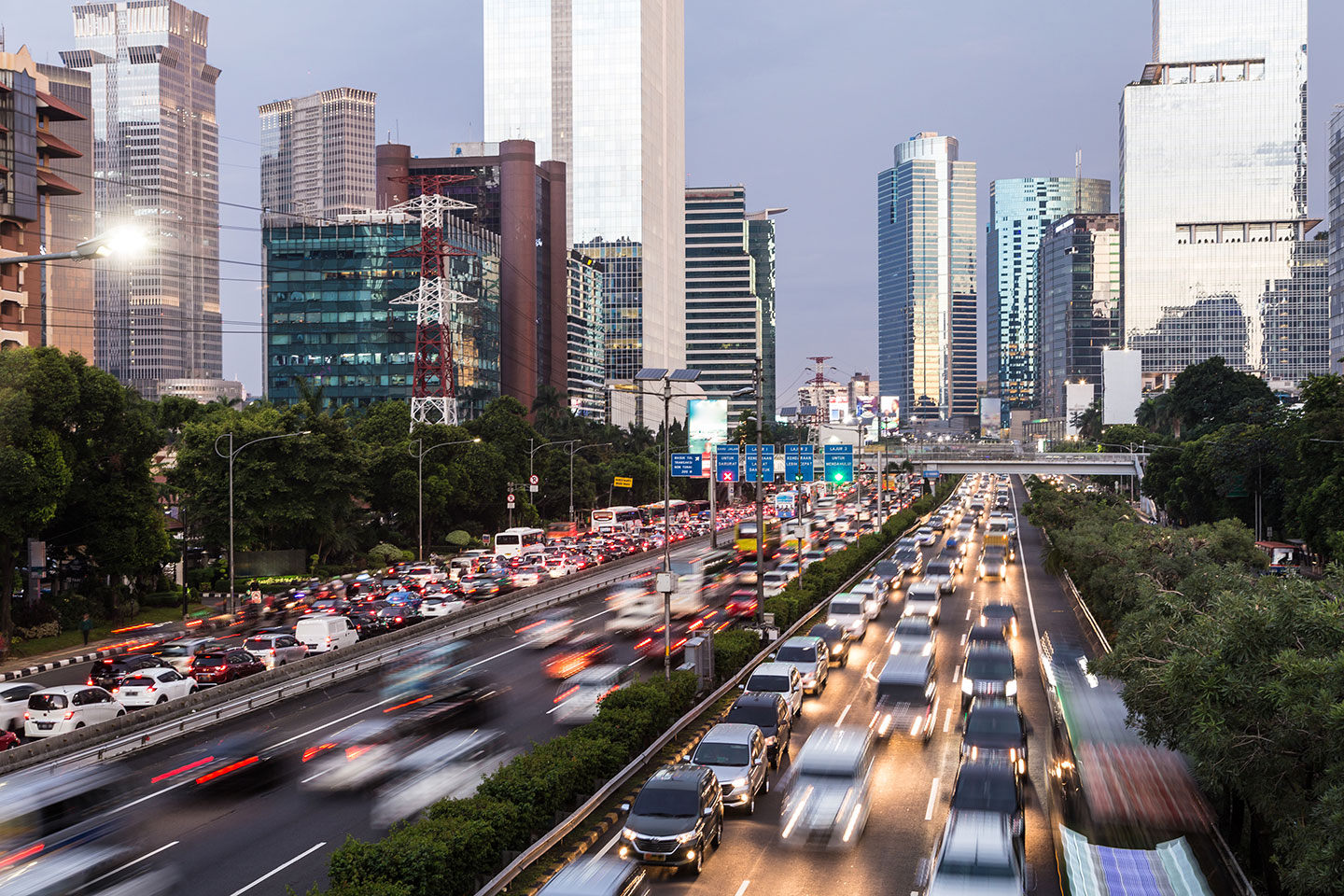Home to more than 10 million people, Jakarta is one of the most congested cities in the world. It is also rapidly sinking – the result of unregulated extraction of groundwater and the weight of rapid urbanisation.
With some areas dropping by as much as 25cm a year, coupled with rising sea levels, experts believe up to one third of the city could be swamped by the Java Sea within 30 years.
With this in mind, Indonesia’s President Joko Widodo was speaking literally as well as figuratively when he said in a televised speech on Monday: “The burden Jakarta is holding right now is too heavy as the centre of governance, business, finance, trade and services.”
In the address, Widodo announced a US$33bn project to move the Indonesian government to a new, as yet unnamed, capital to be built on the east coast of Kalimantan in Indonesian Borneo. According to reports, the move is expected to take around a decade to complete, with the first branches of government set to begin relocating in 2024.
It is certainly a massive undertaking, but many questions remain unanswered, among them the impact the Indonesian economy and how the project will be financed.
According to the government’s plans a relatively small fraction – about one-fifth – of the total cost of the move will come from Indonesia’s state budget. The remainder will be financed through the management of state assets in both Jakarta and the new capital, as well as private investments and public-private partnerships.
However, whether Indonesia can attract these investments and partnerships, without sacrificing too much in terms of government subsidies, grants and tax benefits is a mystery given the relatively short track record of such investments and partnerships in the country.
Pressing issues
It is also unclear what impact the focus of time and resources spent on this project would detract from tackling other pressing issues such as climate change, deforestation and the general reduction poverty and underdevelopment in other parts of the Indonesian archipelago.
Regions such as Nusa Tenggara, Irian and Sulawesi for example, all lag well behind in levels of development and are likely to see few if any spin-off benefits from relocating the capital.
Meanwhile the relocation may also bring its own substantial environmental impacts, such as the clearing of forests in and around the proposed capital and the carbon footprint caused by additional air travel, particularly from Jakarta.
Supporters of the move to Kalimantan say it will help to draw the focus of business activity and wealth away from Java – which accounts for 40 per cent of Indonesia’s population and more than half of its GDP – to less developed parts of the country.
However, as the new capital is likely to only carry out governmental functions, its likely impact as a centre of economic growth is questionable. Certainly other examples of relocated capitals do not provide a strong argument.
Take the example of Brazil’s purpose-built capital, Brasilia. After the Brazilian government was relocated there in 1960, growth in the old capital, Rio de Janeiro, slowed slightly but Rio continued to grow and today makes up about 10 per cent of Brazil’s economy. Sao Paulo, Brazil’s other economic centre, grew even faster and now makes up about 33 per cent of the country’s economy. In contrast, Brasilia itself accounts for less than four per cent.
Dominant market
In Indonesia’s case it is very unlikely that any businesses – except for those that will rely solely on government-related businesses – will follow the government and move from Jakarta. The city will continue to be the dominant market for private capital whilst Java will remain Indonesia’s main market for goods and services. Moving away from Java will simply not make profitable business sense.
Then there is also the consideration that, irrespective of whether the capital relocation project goes ahead, Jakarta’s problems will not be going away. Whatever happens, the city’s congestion, overdevelopment and rapidly sinking land will all require massive government resources in order to maintain its economic momentum and position as the country’s central business hub.
At a broader level, another crucial question mark over the project is the potential for it to spawn corruption and graft, particularly as a result of the potentially dominant involvement of private entities during its planning and construction. Moreover, once the government has relocated, placing the capital so far away from existing metropolitan centres would reduce the number of “eyeballs” scrutinising its performance.
In the US a recent Harvard University study found that states whose capital is located further away from the main population centres were likely to have more government corruption. The study identified lack of media presence as an important channel for this effect.
In Indonesia’s case, placing the capital outside of Java would isolate the central government from newspaper and media coverage as all but one of Indonesia’s largest media groups is based in Jakarta.
Studies have found that another effect of lack of media presence, in addition to a sparsity of citizens and businesses around the centre of government, is that government officials can become detached from voters, business leaders and financial markets. This can result in an echo chamber and groupthink effect, leading to suboptimal and potentially harmful decision-making by the government.
The idea of relocating the Indonesian capital away from Jakarta is not a new one. President Sukarno first proposed it back in the early days of independence as a way to shake off the colonial legacy and position the government closer to the geographic centre of the country.
Whether this time the idea will finally become a reality remains to be seen. But there are many questions to be answered before the concrete starts pouring.




